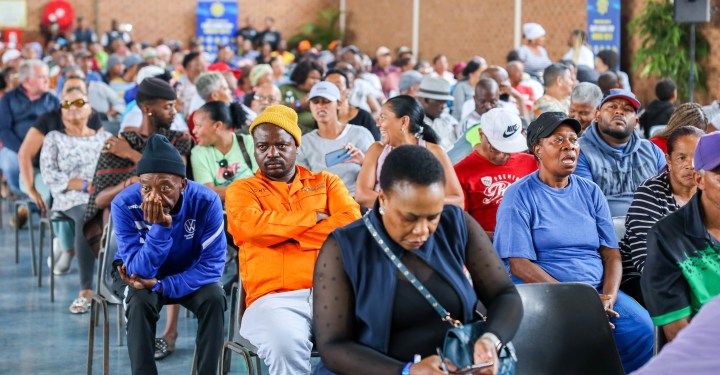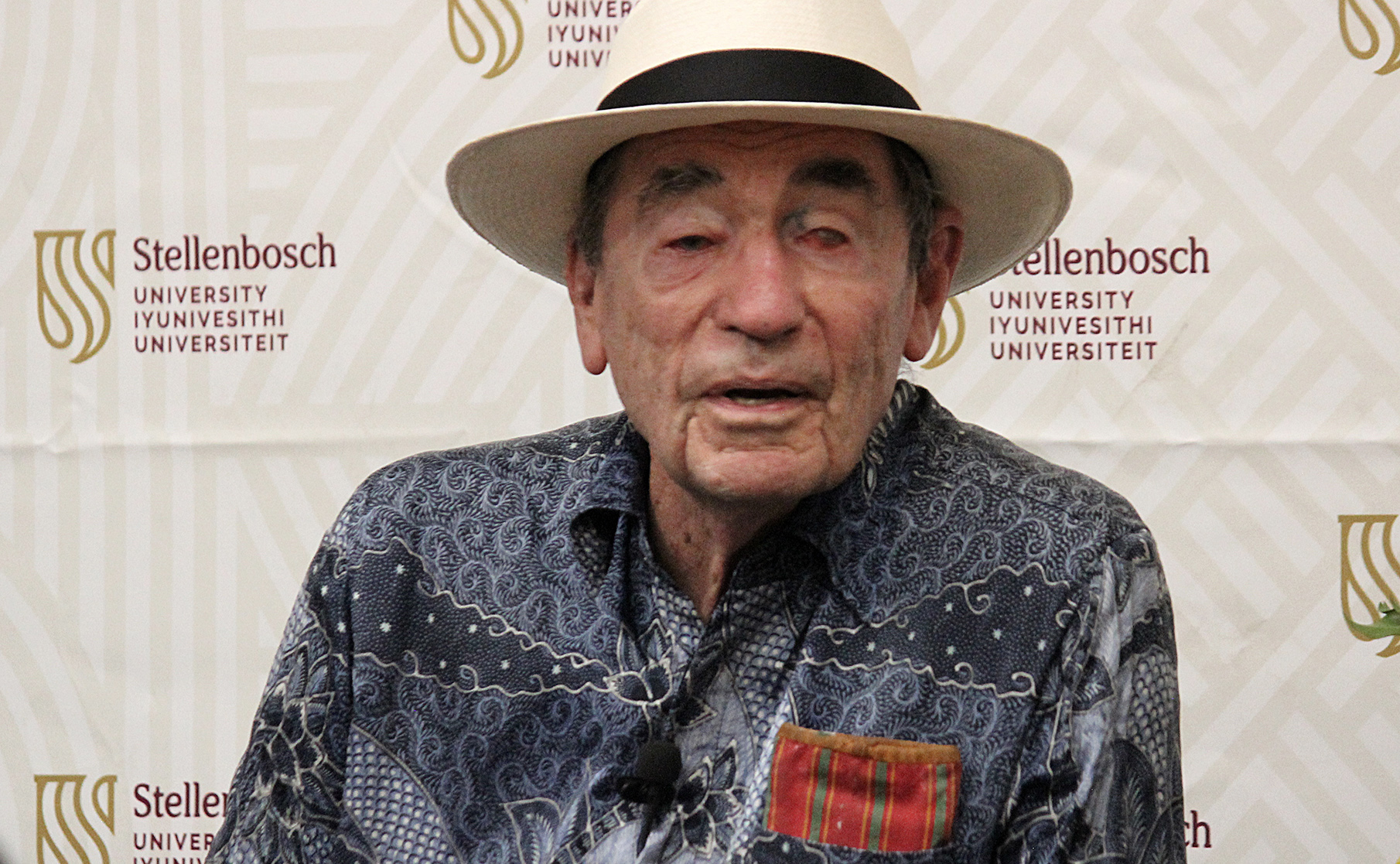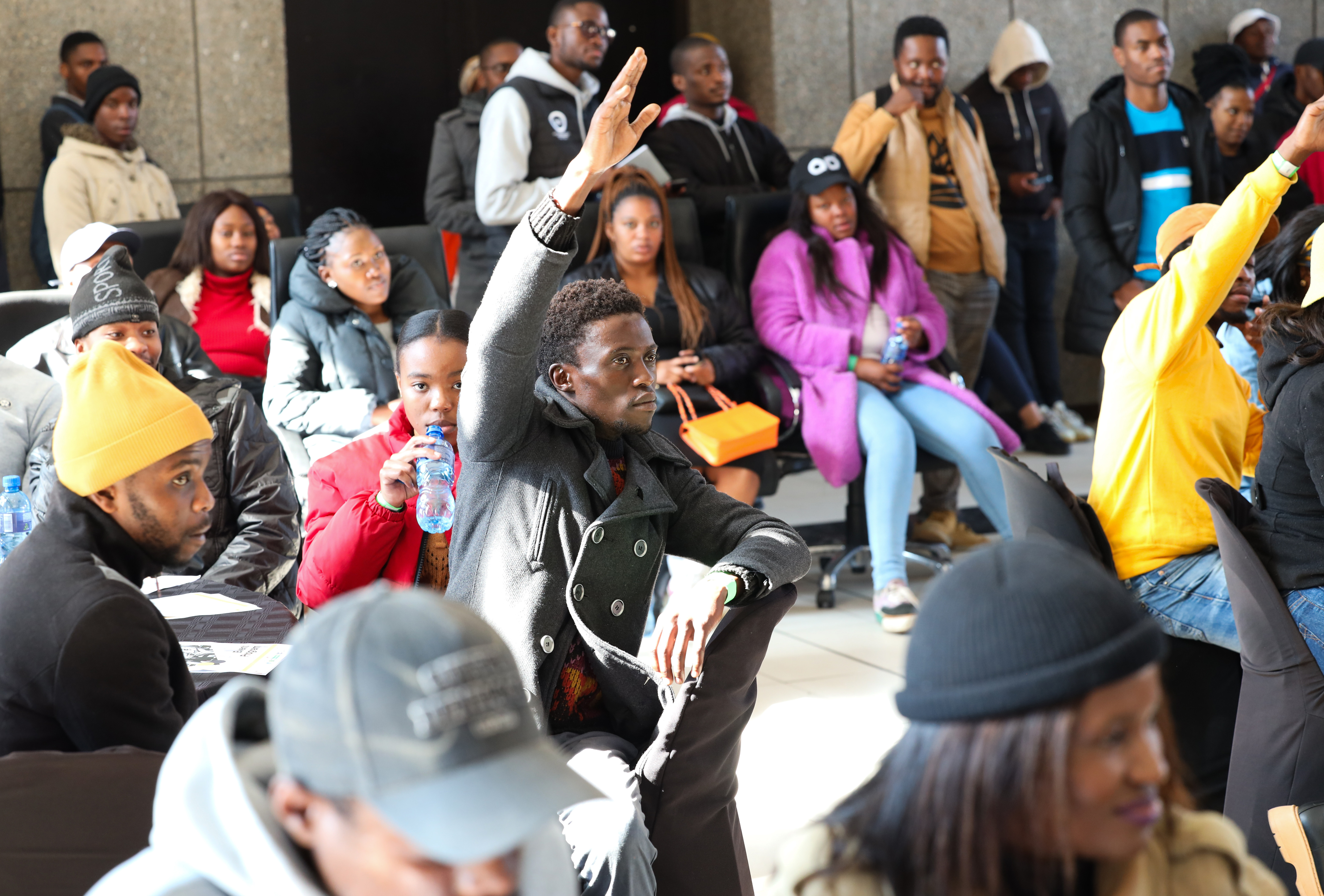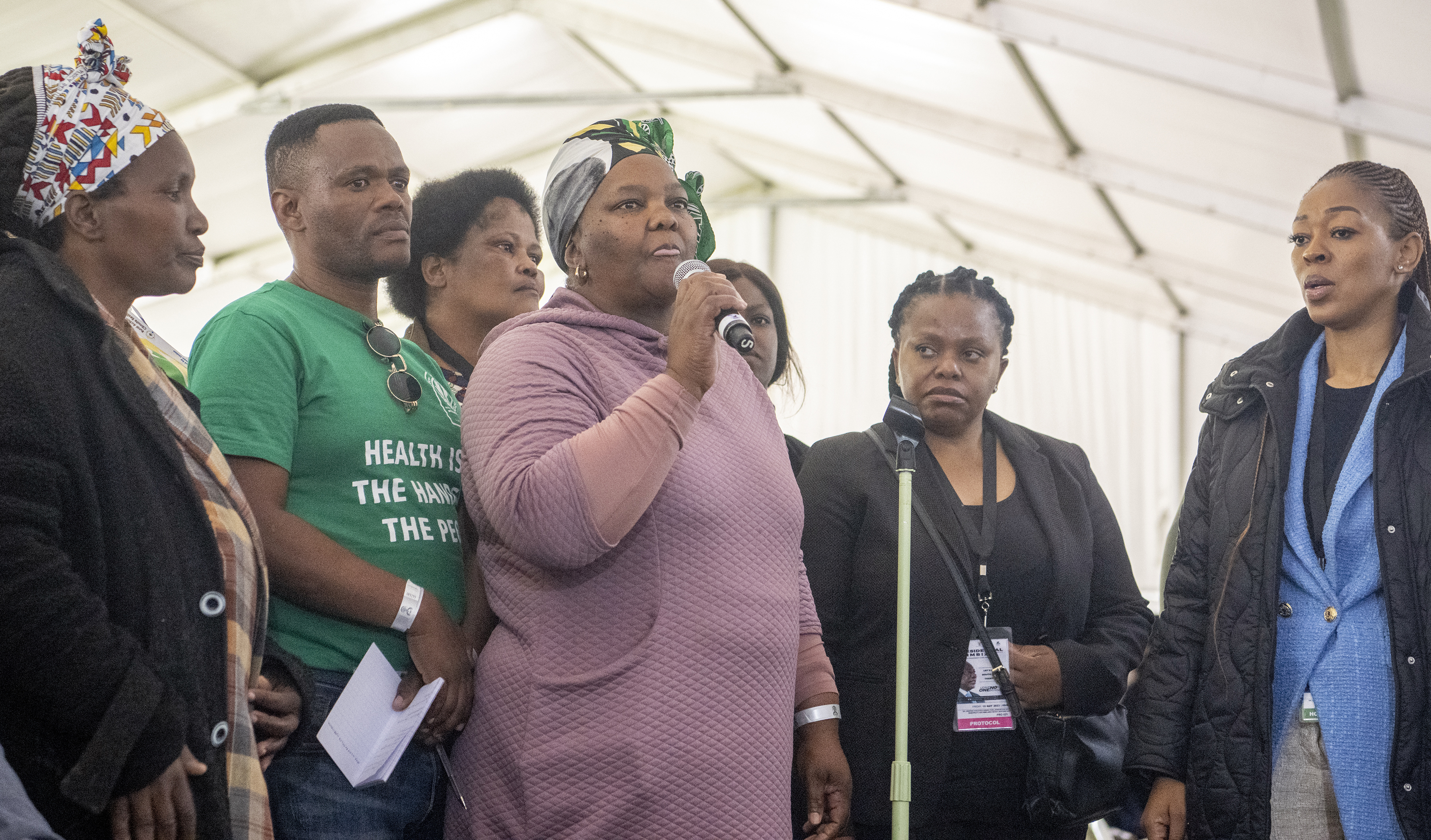PARTICIPATORY DEMOCRACY OP-ED
Albie Sachs on the landmark case that affirmed the importance of legislative public participation

Participatory democracy acts as a fundamental pillar in our pursuit of a just and inclusive society. As responsible citizens and leaders, it is incumbent upon us to deeply comprehend and uphold the principles that underpin this vision. Justice Albie Sachs, a distinguished former Constitutional Court judge, offers valuable reflections on a case that exemplifies the importance of participatory democracy – the Doctors for Life case.
In 2005, Parliament passed four pieces of legislation relating to reproductive healthcare matters. Doctors for Life, a conservative organisation, objected, alleging that the National Council of Provinces (NCOP) had not sufficiently involved the public in the process, in violation of sections 72 and 118 of the Constitution.
Section 72 requires the NCOP to facilitate public involvement in legislative processes, while section 118 imposes the same obligation on provincial legislatures. Doctors for Life International, which had conservative views on the Choice on Termination of Pregnancy Act 92 of 1996, challenged the proposed law on the grounds that it had not been subject to sufficient public participation, in a novel case that pitted representative democracy against participatory democracy.
In the verdict, the Constitutional Court determined that the NCOP had not fulfilled its constitutional duty to encourage public participation in the process of creating laws. The court established that the NCOP had neglected to request written input from the public regarding the bills, had not conducted public hearings on the bills, and had disregarded public opinions when making decisions about the bills.

The Constitutional Court hears arguments about whether the processes and public participation conducted by Parliament to pass the Traditional and Khoi-San Leadership Act 3 of 2019 was adequate in terms of the Constitution. (Photo: Leon Sadiki)
The word “participatory” does not appear in the Constitution, but section 1(d) refers to a “multiparty system of democratic government”. The meaning of this phrase was central to the judgment, which ultimately found that the NCOP had not met its constitutional obligations to facilitate public participation in the legislative process.
Read more on Daily Maverick: ‘Unity in diversity’ – Justice Albie Sachs reflects on the importance of participatory democracy in SA
The Doctors for Life case was a landmark decision that affirmed the importance of public participation in the legislative process. It also highlighted the tension between representative democracy, in which the people elect representatives to make decisions on their behalf, and participatory democracy, in which the people themselves have a more direct role in decision-making.
The Constitutional Court’s decision to strike down the law was not an encroachment on Parliament’s authority but a necessary consequence of Parliament’s failure to fulfil its promise of public engagement.
The case served as a poignant reminder of the paramount importance of engaging the public in legislative processes. This landmark decision not only reaffirmed the need for participatory justice in South Africa, but also continues to provide valuable insights for our democratic institutions.
The case is a reminder that participatory democracy is not just an abstract ideal but a fundamental right enshrined in the Constitution. It is a right that must be upheld to build a truly democratic society.

‘It’s not a fair country, it’s not a safe country, but it’s an open country,’ said Justice Albie Sachs, a former Constitutional Court judge, of South Africa at the fourth annual Social Justice Lecture at Stellenbosch University on 21 February 2023. (Photo: Tamsin Metelerkamp)
Our Constitution, as the foundational document of our democracy, envisions a system that goes beyond periodic elections. It calls for a dynamic democracy that actively engages citizens in decision-making. As Justice Sachs eloquently states, the vision is not akin to “sleeping beauty”, where democracy is awakened solely during elections. Instead, it demands ongoing public engagement and the recognition of the diverse voices within our society.
Read more in Daily Maverick: ‘Unity in diversity’ – Justice Albie Sachs reflects on the importance of participatory democracy in SA
Participatory democracy yields several benefits for both governance and society. When people are knowledgeable about the law and have been involved in its formulation, they feel a sense of ownership and belonging. This fosters unity amid diversity, ensuring that all sections of society have an opportunity to contribute meaningfully. Better outcomes are achieved when legislation reflects the realities and aspirations of those most affected by it.
Participatory democracy is also particularly vital for groups traditionally marginalised or underrepresented in formal power structures. The Doctors for Life case highlighted the importance of engaging local healers and recognising their expertise. By involving such outlying groups, we strengthen our democracy by embracing the wisdom and experiences of all citizens. The recognition and inclusion of diverse perspectives lead to fairer outcomes and a stronger sense of social cohesion.
Watch on Daily Maverick: South Africans cannot afford to sit on the sidelines of our young democracy – experts say
The Constitutional Court’s decision to strike down the law in question demonstrated the court’s commitment to upholding participatory justice. It was not an encroachment on Parliament’s authority but a necessary consequence of Parliament’s failure to fulfil its promise of public engagement. This judgment affirms that reasonable measures must be taken to ensure genuine public involvement, thus emphasising the court’s role as the guardian of constitutional principles.

Youth representatives at a Youth Jobs Imbizo Summit at the Metro Centre in Johannesburg on 23 June 2023. The summit brought together business, young people and the government to discuss pressing issues affecting young people. (Photo by Gallo Images / Luba Lesolle)
South Africa stands out as a beacon of participatory democracy, with few precedents worldwide of legislation being struck down due to failures in public engagement. We must recognise this unique position and continue to lead by example. The global trend towards disillusionment with traditional political processes calls for revitalising participatory democracy. Rather than sporadic consultations, continuous public engagement is key to rebuilding trust and empowerment.

Paarl residents at a presidential imbizo held at the Dal Josaphat Sports Stadium on 19 May 2023, where they shared their unhappiness and grievances directly with the President. (Photo: Gallo Images / Die Burger / Jaco Marais)
In conclusion, the Doctors for Life case offers us valuable insights into the true essence of participatory democracy. As a living document, our Constitution demands more than just representative democracy; it envisions an active, engaged citizenry. We must embrace the principles of inclusivity, accountability and openness. By taking reasonable steps to involve the public, we strengthen our democracy and ensure a fair and just society. Let us seize this. DM
The Inclusive Society Institute is an independent nonprofit institution which has as its objective the promotion of a more inclusive, just and equitable South African society. This article draws on the institute’s Constitutional Insights: A Series of Talks with Judge Albie Sachs. The series is being promoted in collaboration with Daily Maverick.
Nicola Jo Bergsteedt is Researcher at the Inclusive Society Institute.





















Comments - Please login in order to comment.